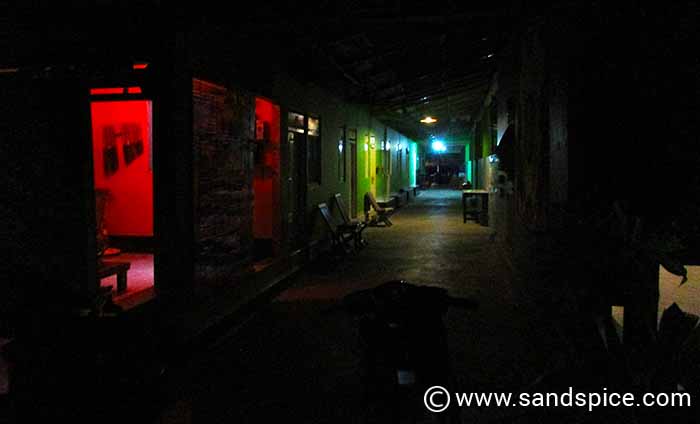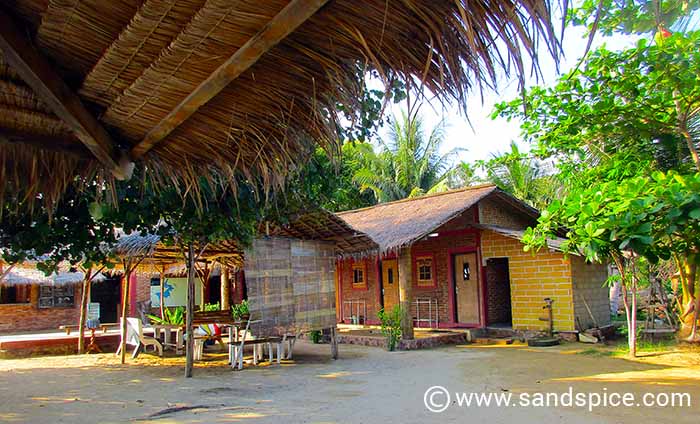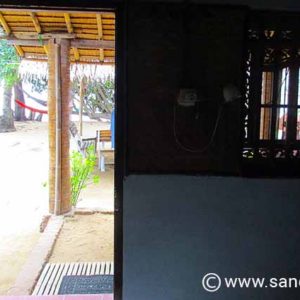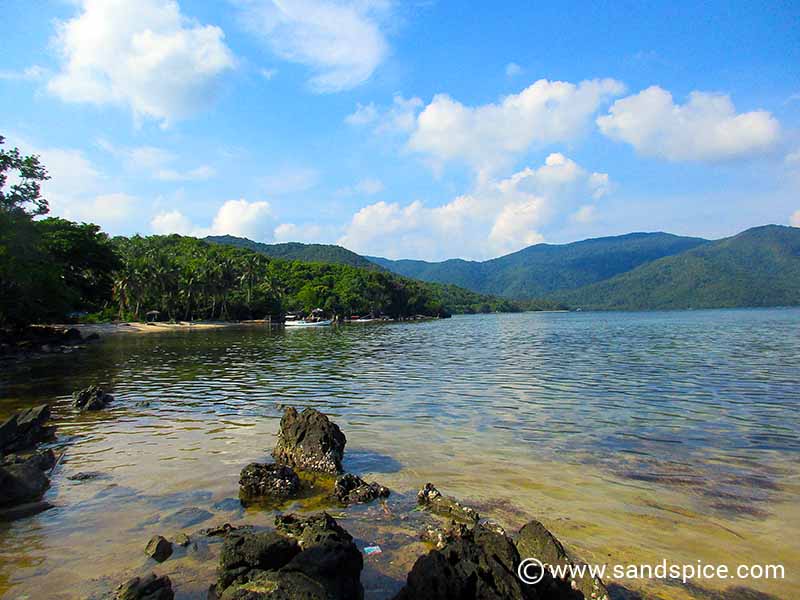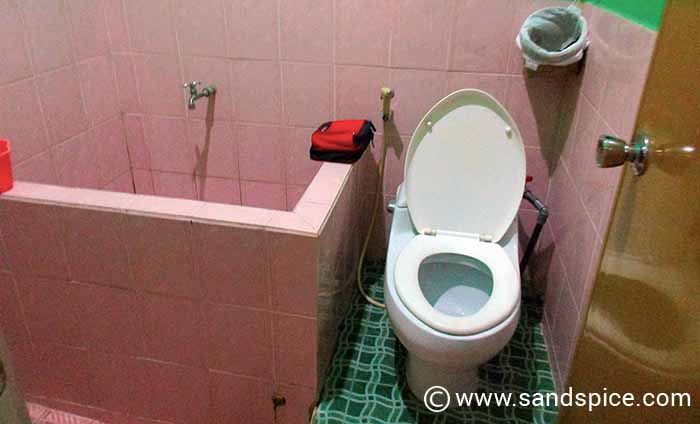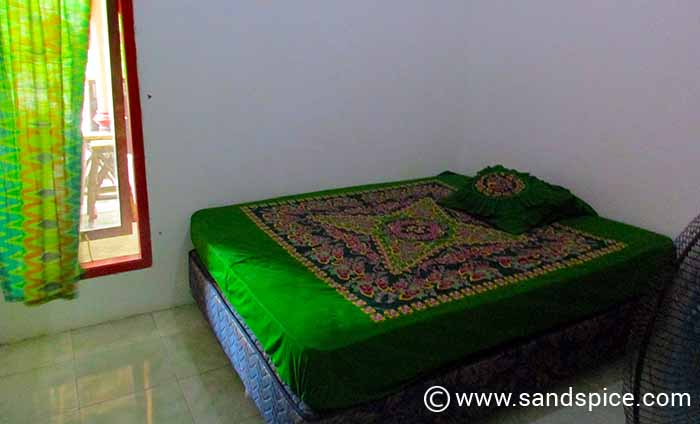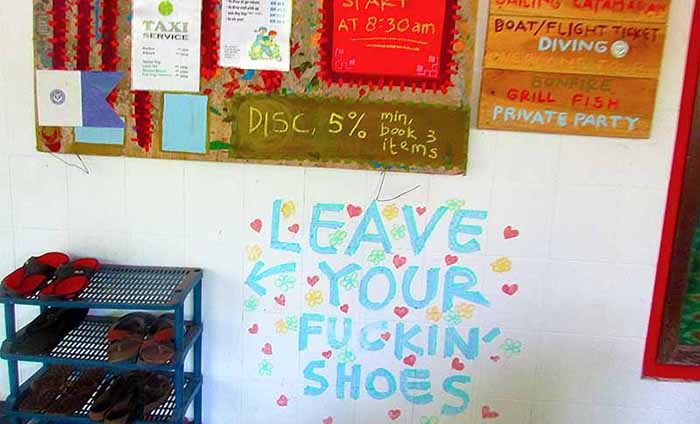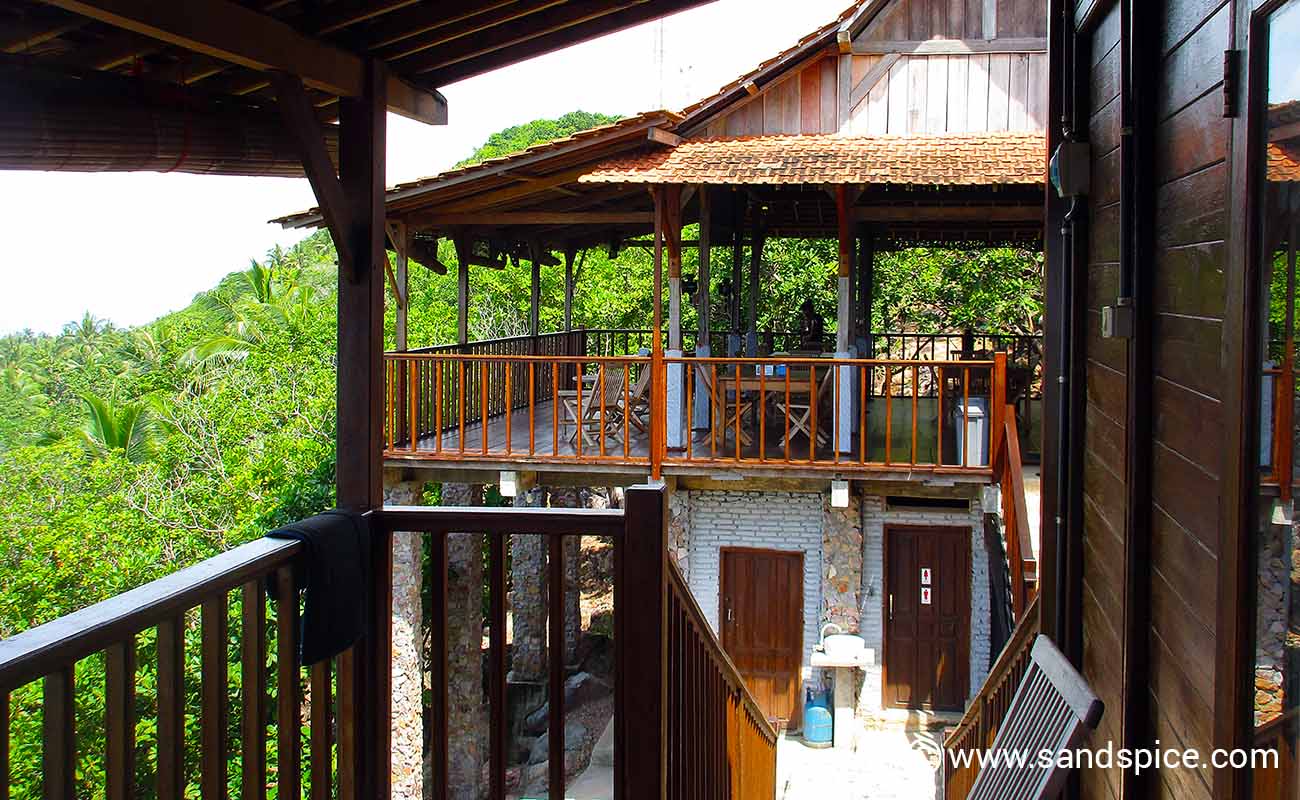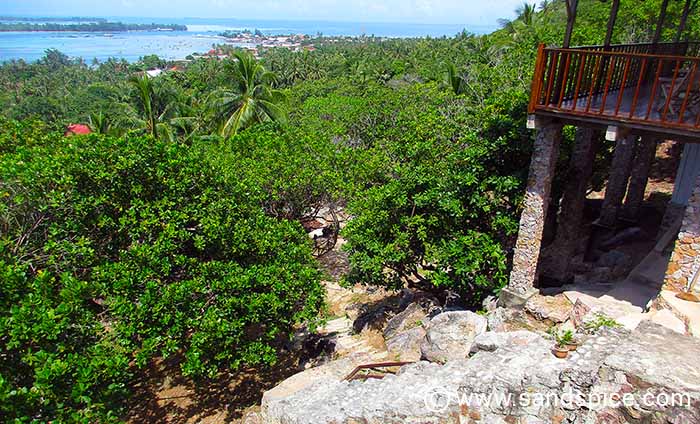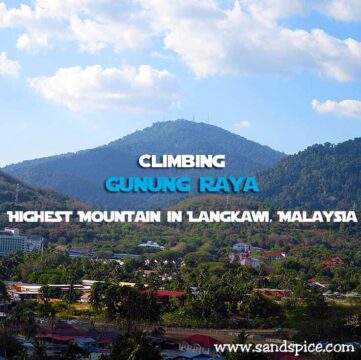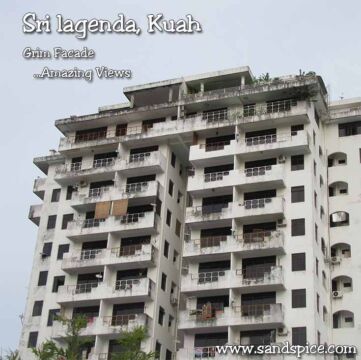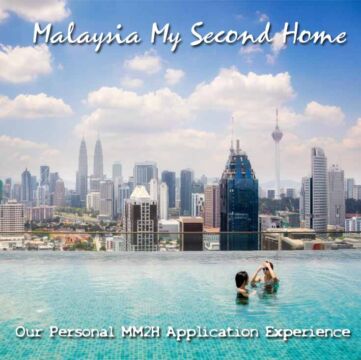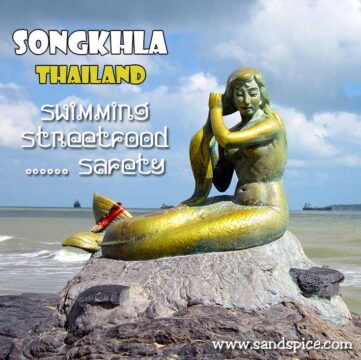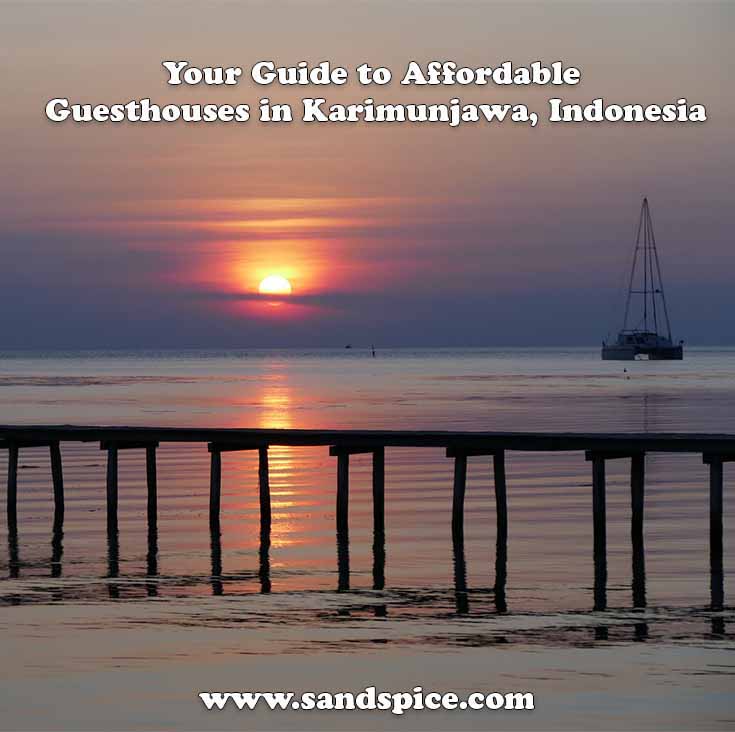
Your Guide to Affordable Guesthouses in Karimunjawa 🏝️ Indonesia
We traveled to this remote Indonesian speck fully expecting a touch of the rough-and-tumble. Karimunjawa, a collection of islands that sounds vaguely like a sneeze, is a place where the guesthouses are many, ranging from the genuinely charming to the ones that make you consider sleeping on the beach.
During our stay, we tried out a variety of accommodations at very different ends of the price spectrum. We were determined to test the very limits of “affordable”.
Our findings? A detailed, first-hand account of the good, the slightly sticky, and the positively baffling.
Do sit down; this is going to be a journey 😲
Highlights
- Decoding Accommodation Costs 💰
- Dormitory-Style Accommodation
- Waru 🌿 A Raw Introduction
- Samsara 🎉 The Party Next Door
- Cocohuts 🏞️ Scaling New Heights
- Breve Azurine 💸 Maldives Wannabe
- Asari 🏍️ Out in the Sticks
- Local Scooter Rental
- All Hotel Deals in Karimunjawa
- What We Carry in the Jungle
- A Complete Indonesia Itinerary
The Price for Peace 💰 Decoding Accommodation Costs
You see those prices floating around online? The ones that make you think you’ve stumbled upon a philanthropic scheme run by benevolent hoteliers?
Take them with a sizeable pinch of salt—or, perhaps, a handful of anti-malarials. The pricing spectrum here is less a gentle gradient and more a vertical drop from “nearly free” to “maybe I’ll just sell a kidney.”
We found that you could, technically, snag a room for as low as IDR 100,000 (€7). We did, and we’ll get to that, but be advised: this particular tier of hospitality involves shared facilities and a competitive lack of elbow room. It’s the sort of place where you cook your own breakfast in a communal kitchen that looks like a science experiment gone wrong.
You won’t find those prices on the big booking sites, incidentally. You just turn up, look suitably bewildered, and take your chances. A high-stakes gamble, that.
For a slightly more civilised experience—a private bathroom being the new gold standard—we were looking at IDR 200,000 (€14) and still firmly in the “basic” category.
The point where things became comfortably decent with a sea view, which is the minimum you’d expect after a boat journey that felt like a washing machine cycle, started around IDR 500,000 (€35).
Beyond that, we were just indulging our most decadent urges, maxing out at IDR 1.4 million (€98) for a bungalow that was trying a bit too hard to be the Maldives.
Bless its ambitious heart.
With the exception of the Asari Guesthouse, all of the places described below are located in or around Karimun town.
The School of Hard Knocks 🎒 Dormitory-Style Accommodation
We all know the drill. It’s cheap, it’s cheerful, and it’s usually populated by people who have somehow managed to travel for six months on the equivalent of a bus fare.
At the very bottom of our financial plummet was the dormitory-style accommodation, those gallery-esque blocks with communal facilities, clustered around the Jalan Dr Sutomo in Karimun town.
- You pay IDR 100,000 (€7), and what you’ll receive is, essentially, a cupboard with a mattress.
- It’s the kind of place where you truly appreciate the concept of minimalism—mostly because there is absolutely no storage.
Still, it’s a roof, and for the budget-conscious, it’s a port in a storm.
Just remember to pack your own luxury items, like a working sense of humour.
Waru Guesthouse 🌿 A Raw Introduction
The Waru Guesthouse was the first of the 4 guesthouses we planned to visit on Karimunjawa island..
After an unscheduled delay in Semarang—a travel mishap that felt like the universe testing our resolve—we managed to rock up two days late. We fully expected a stony reception and a demand for the missed nights’ fees.
Instead, we were met at the jetty by a helpful chap who actually walked us the short distance to the guesthouse, offering up useful information about the island like a benevolent local oracle. A surprising start.
Upon arrival, though, our initial thought was: “Backpackers Central.”
It bore little resemblance to the deceptively flattering promotional photos we’d seen online. Our room was a small, moody cave containing a table and a double mattress on the floor. We had a private shower, which felt like a small victory, only to discover the toilet was shared.
We were a mere twenty yards from the sea, which sounds marvellous, except that in November the tide takes a holiday, leaving a vast, murky expanse of ankle-deep water. You’d need to walk a minor marathon just to get to anything deep enough for a proper paddle.
Not to mention – being so close to the port – it wasn’t exactly the most pristine place for a sea dip.
Snorkelling was manageable, providing you successfully negotiated the shallows and a minefield of sea urchins.
The Silver Lining:
- The room was clean, we will give them that.
- We had a functioning mosquito net and a fan that mysteriously only worked after 6pm. A fan with office hours—how very structured!
- The shared toilet was clean and well-equipped.
- We had a communal kitchen with free tea and coffee.
- The beach area had lovely spots for breakfast and hammocks—perfect for a bit of sun-drenched inertness.
For the IDR 180,000 (€12), including breakfast, it was genuinely good value. And here’s a kicker: despite missing two nights of our booking, they only charged us for the one night we actually stayed. A moment of true, unexpected generosity from the young staff.
We later returned just to hire snorkelling gear—IDR 25,000 for a mask and fins. You can also hire a Go-Pro camera from them if you’d like to take some underwater footage.
On the plus-side, our room was clean with a decent mosquito net and a fan (working after 6pm). The shared toilet was also clean and well-equipped. We had use of the communal kitchen where free tea, coffee, sugar and hot water is provided.
On the beach in front of the rooms there are some nice places to sit and enjoy breakfast, as well as some hammocks – perfect for an afternoon doze.
Samsara Guesthouse 🎉 The Party Next Door
Having survived Waru, we moved on to the Samsara Guesthouse, a mere ten-minute stroll from the main harbour. This was to be our home for the next three nights, at IDR 200,000 (€14) per night, including breakfast. We had our own private bathroom and a fan. A step up, we thought.
The thought lasted about five minutes.
The toilet was clearly harbouring some deep-seated issues. It refused to flush and had a permanent leak, meaning the bathroom floor was perpetually slick with water.
We spent the next three days manually flushing the toilet with a bucket of water. It was an excellent upper-body workout, but perhaps not the zen travel experience we were hoping for.
There was no mosquito net (nor any easy means to hang the one we brought with us). Storage was, yet again, a fantastical concept, so we continued to live out of our rucksacks.
They’re Pet-Friendly! 😼
The Samsara folk pride themselves on being pet-friendly. This, we quickly learned, meant that if you dared leave your window ajar, stray street kittens would be sprinting across your bedsheets. Now, we’re not monsters, but a spontaneous feline invasion is not everyone’s preferred wake-up call.
Breakfast, for those who are keeping score, was a chocolate pancake and a ‘help yourself’ cup of tea. Basic. Extremely basic.
You get what you pay for, as the old saying goes, though sometimes you feel you’re getting less and paying for the privilege.
It’s Party Time!
The communal area felt less like a guesthouse and more like a rehearsal space for a dreadful indie band.
It got loud. We endured people singing, and one profoundly unmusical soul attempting to coax a tune out of a guitar. If you crave silence, this is not your spot.
The whole experience, even with a private room, felt exactly like staying in a dormitory—minus the bunk beds.
The establishment appeared to be run by a youthful troupe of Indonesian lads whose priorities seemed to be firmly in favour of partying instead of property management. We felt less like paying guests and more like inconveniences interrupting their party time.
The maintenance was non-existent, and the cleaning was, well, lacking.
We noticed a sign painted in large, unambiguous letters on the front wall as we arrived. It was a charming, passive-aggressive guest notice.
We came very close to fleeing after our first sleepless night, soundtracked by the hosts’ revelry.
We stayed, purely out of sheer, bloody-minded principle, but Samsara is undeniably an acquired taste. One we didn’t manage to acquire.
 All Hotel Deals in Karimunjawa
All Hotel Deals in Karimunjawa
Cocohuts 🏞️ Scaling New Heights for a View
Following these educational experiences in Karimun town, we decided to splash out.
At well over three times the price of a standard homestay, Cocohuts promised an upgrade that we were ready to accept with open arms.
The immediate selling point is the location. Perched dramatically on a hillside overlooking the port, it offers what can only be described as the best views on the island.
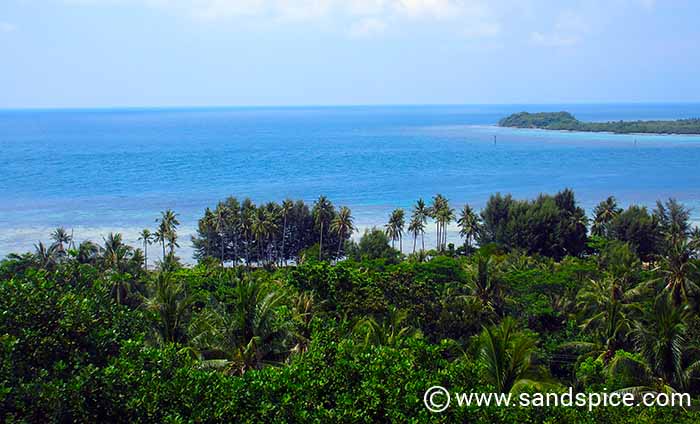
The view from Cocohuts. Karimunjawa
We opted for a deluxe bungalow at IDR 500,000 (€35) per night. Our cabana shared a huge open balcony and absolutely stunning vistas that genuinely made us forget the past few nights of bucket-flushing.
A little higher up the slope, you can rent one of 2 double-storey bungalows. Lower down, there are 4 more places to rent, without the view.
The Bunglow’s Winning Features:
- A large, genuinely comfortable bed with a proper mosquito net.
- Air conditioning. A life-affirming luxury.
- Plenty of quality storage (a genuine thrill after Samsara).
- A good bathroom and shower.
- A flatscreen TV and media box with a frankly superb selection of HBO content. A proper, civilised evening was suddenly possible.
- Plenty of charging points and decent, albeit intermittent, WiFi.
Breakfast was included, offering a perfectly fine choice of Indonesian or Western fare. The German owner (who was absent) had even provided a detailed ‘Welcome Manual’ and FAQ—useful, organised information in English.
A touch of Teutonic efficiency in the tropics.
Just behind our cabana, there was a private spot high on the cliff with room for just a single table and 2 chairs.
Here, if you booked a couple of days in advance, you could enjoy an exclusive and romantic sunset dinner for 2. A nice touch.
Understaffed & Out of Office ⏰
Now for the inevitable ‘but.’
The single, major problem with Cocohuts is the staffing level. It’s grossly understaffed. The German owner lives on the mainland, leaving a young Indonesian manager in charge who had only a sliver of English.
- Breakfast prep was hit-and-miss, never starting before a leisurely 8am. Patience is a virtue, we were reminded.
- The most baffling part? Between 12pm and 5pm, the manager went home to sleep. This meant no staff were on the premises.
- Need a key? Need a cold drink? Need anything at all? You’ll have to wait.
This caused genuine distress for the couple next door, who were locked out in the midday heat with their baby for two hours. It felt less like a guesthouse and more like a beautifully curated, self-service museum.
Adding insult to injury, and in stark contrast to the cheaper joints in town, Cocohuts offered no free coffee or tea. Not even a flask of hot water. A cardinal sin, frankly.
We’d paid for luxury, but the simple pleasure of an early morning cuppa had to be sourced elsewhere.
Stairway to Heaven 🧗
Finally, there is the matter of the ascent. The climb to our bungalow was a steep, uphill hike. It is absolutely not for the faint of heart, the elderly, or those who have skipped leg day for the past decade. We found ourselves making this climb several times a day. It was a serious calorie burn, exhausting in the unrelenting heat.
If you made it to the top, dripping and gasping for breath, you might be greeted and offered a cold drink. But, as we established, don’t rely on it.
Despite the mild inconvenience of being intermittently locked out and physically broken by the climb, we were happy up there. It was serene, the views were peerless, and we spent a considerable amount of time simply enjoying the view from the balcony.
Breve Azurine 💸 The Maldives Wannabe
Our final two nights were spent at the Breve Azurine, a mini-resort about a thirty-minute walk from the town centre.
This one featured individual deluxe bungalows, a private beach, a lagoon, and a price tag of IDR 1,410,000 (€95) per night. At almost 3-times the cost of Cocohuts, our were looking forward to spending our last 2 days on the island in some serious luxury…
As one should expect when paying the local equivalent of a small mortgage instalment, the place was immaculate, and the service was genuinely excellent.
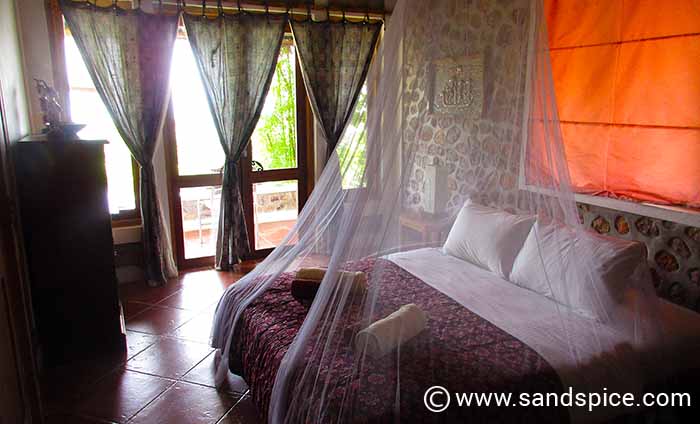
Karimunjawa Guesthouses – Breve Azurine
However, and here’s the kicker, it simply wasn’t worth the money. It was lovely, yes, but it didn’t offer three times the joy of Cocohuts. It felt like paying for a brand name when the generic version was performing perfectly well.
But, we were on holiday, and sometimes one just has to indulge in a bit of unnecessary opulence.
For a detailed description of our experiences at the Breve Azurine, take a look at this related article.
Asari Guesthouse 🏍️ Out in the Sticks
If you’re looking to genuinely escape the mild hustle of Karimun town, you need to head north to Timo beach and the nearby Asari Guesthouse.
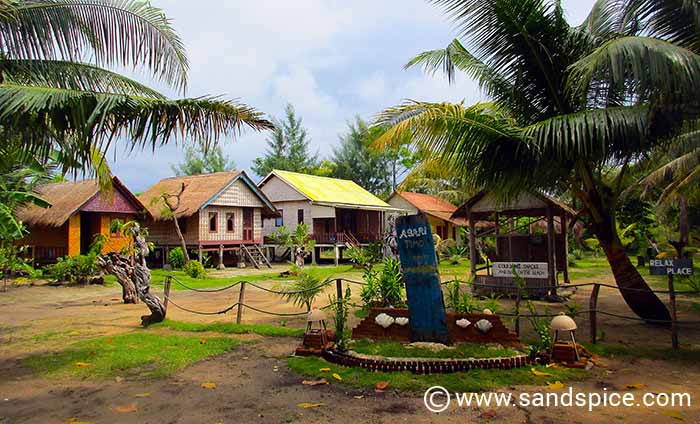
Karimunjawa Guesthouses – Asari
Asari is secluded, private, and features only two or three lodges. It offers a budget double room for IDR 200,000 (€14) per night.
We didn’t stay here this time, but the idea of a truly private, well-equipped, budget-friendly escape is certainly appealing.
A Verdict on Karimunjawa Guesthouses 🧐
Looking back at our sometimes frustrating, often amusing tour of Karimunjawa accommodation, a clear preference emerged.
We concluded that the optimal split would be between Cocohuts and Asari. The former gives you the luxury, the view, and the self-inflicted leg day, while the latter offers the complete seclusion of the north side of the island for a pittance. It provides the perfect balance of budget-friendly isolation and well-earned decadence.
We learnt that you can’t fully trust the pictures, you must pack your own mosquito coils (and maybe a bucket), and that a good view is usually preceded by a terrible climb.
Karimunjawa’s guesthouses are a mixed bag, but they provide a story worth telling. And what more can one truly ask for from a holiday?
Note that you would need to arrange some form of transport if staying in the north.
Key Takeaways for Your Karimunjawa Stay 👇
If you’re looking to replicate our experiences (or avoid them entirely), here are the key factors for booking your Karimunjawa Guesthouse or homestay:
- Bookings vs. Walk-ins: For the absolute cheapest budget rooms (IDR 100k-200k), you often need to walk in or book via direct message, as they rarely feature on major platforms like Booking.com.
- Location, Location: Karimun Town is central for ferry port access and restaurants. Places like Cocohuts offer sea views and serenity but require a scooter rental or hefty climb.
- The Mosquito Situation: Even mid-range places can lack adequate nets. Always pack mosquito coils or a good quality net.
- Essential Amenities: Don’t assume. Always check if ‘private shower’ also means private toilet—it is not a given in the budget range. Air conditioning (AC) is a premium feature starting around the IDR 500k mark.
- Value Sweet Spot: For decent comfort, a clean room, and a private, functional bathroom, aim for the IDR 300,000 to IDR 500,000 price bracket. This is where you avoid the worst of the ‘party hostel’ vibe and the lack of maintenance.
Now, if you’ll excuse us, we need a lie-down and a strong cup of tea—a commodity we shall now be carrying everywhere.
If you’re looking for an Affordable Guesthouse in Karimunjawa, check out our Central Java Travel Plan. You may also like:
Spice up your inbox…

… with discounted hotel deals, cost-saving travel itineraries and SandSpice escapades! 😉



